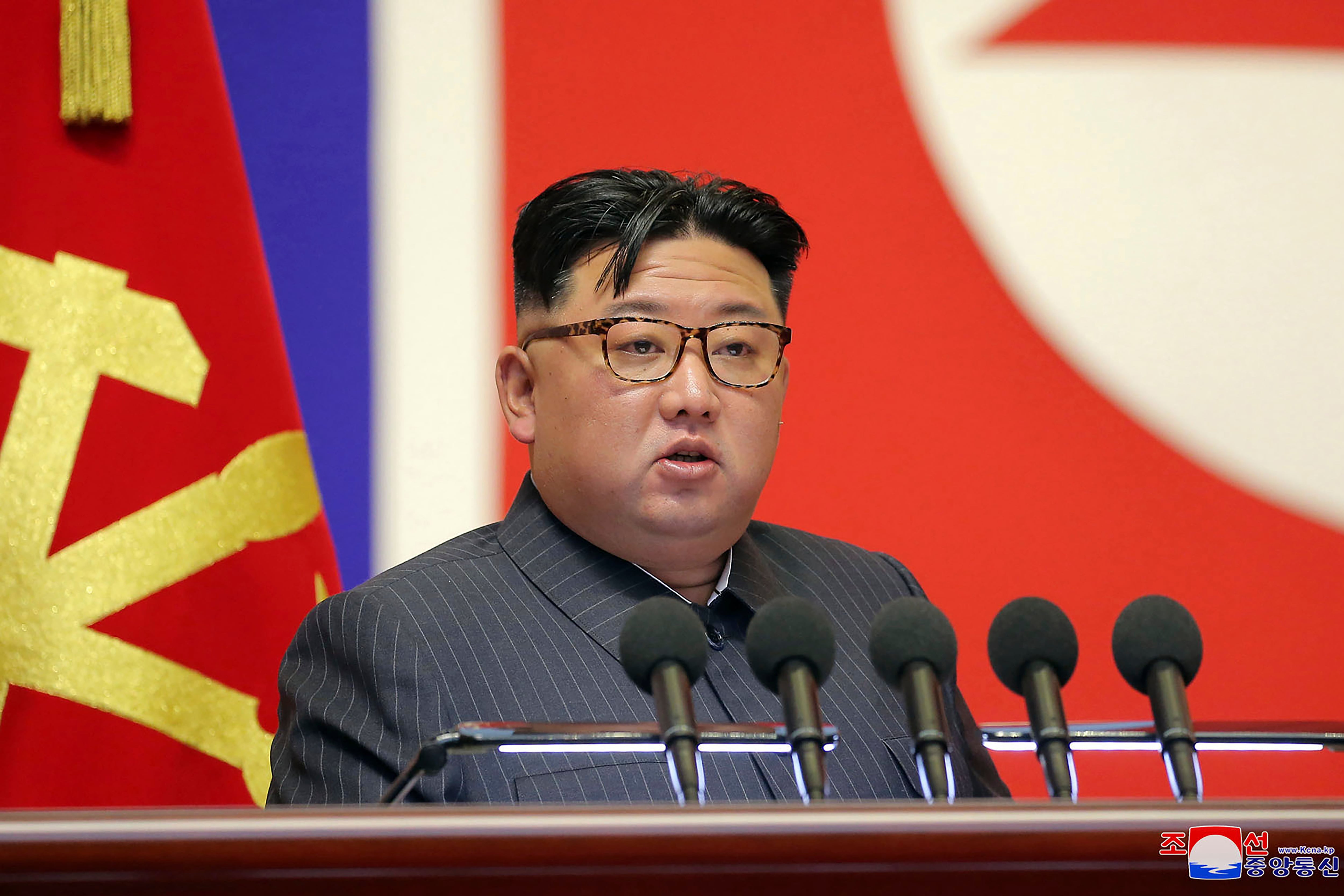WASHINGTON ― The U.S. and South Korea announced Thursday they will extend joint military drills in the wake of North Korea’s saber-rattling this week, which included an intercontinental ballistic missile launch.
North Korea fired at least six missiles into the sea on Thursday and more than 20 missiles a day earlier, prompting condemnation from Seoul and Washington ― including U.S. Defense Secretary Lloyd Austin after a prescheduled Pentagon meeting with his South Korean counterpart, Lee Jong-sup.
“I’ve consulted with Minister Lee and we’ve decided to extend Vigilant Storm, which is our long-scheduled combined training exercise, to further bolster our readiness and interoperability,” Austin said at a joint press conference.
“Our commitment to defending the ROK is ironclad. We strongly condemn the DPRK’s irresponsible and reckless activities,” Austin said, using acronyms for South Korea and North Korea. “We call on them to cease this type of activity and to begin to engage in serious dialogue.”
North Korea’s provocations came in reaction to the joint Vigilant Storm drills, which involve some 240 aircraft, including F-35s, and thousands of U.S. and South Korean troops. North Korea had issued a veiled threat Tuesday to use nuclear weapons, and the two countries fear North Korea might next undertake its first nuclear test since 2017.
Lee said Pyongyang is capable of a nuclear launch, but it’s unclear when it might happen or for what political aim.
Austin and Lee did not say how long the drills would be extended. However, North Korea has warned the decision to extend the air drills would spark “an uncontrollable phase,” South Korean media reported.
In a further sign of the tensions, both Austin and Lee said the alliance’s nuclear and conventional deterrents are in play, while Lee also warned that if Kim Jong Un uses nuclear weapons it would result in the end of his regime.
“Secretary Austin and I affirm that any nuclear attack by the DPRK, including the use of tactical nuclear weapons is unacceptable and would result in the end of the Kim Jong Un regime by the overwhelming and decisive response of the alliance,” Lee said. “This is a strong warning against the DPRK.”
In the wake of North Korea’s launches, Austin defended U.S. efforts to deter North Korea, saying the U.S. has shown its combat power and commitment by sending American fifth-generation fighter aircraft and the carrier Ronald Reagan to the region this year. Such deployments will continue on a routine basis, but there will be “no new deployment of U.S. strategic assets on a permanent basis,” he said.
As part of efforts to rebuild trilateral security cooperation between the U.S., South Korea and Japan, Lee said there’s new agreement to restart the Defense Trilateral Talks. The dialogues had been suspended for several years as longstanding tensions between South Korea and Japan flared, but Lee said South Korea had agreed to trilateral senior-level policy talks, information sharing and training.
RELATED

South Korea and the United States also agreed this week to boost coordination in their monitoring of North Korea.
On Wednesday, Lee became the first South Korean defense minster to visit the U.S. National Geospatial-Intelligence Agency, the agency in charge of processing and analyzing satellite imagery. NGA, which is headquartered in Springfield, Va., also delivers products to the intelligence community, military and policymakers.
South Korea’s defense ministry said Lee and NGA’s director, Vice Adm. Frank Whitworth, discussed ways to respond to North Korea and agreed to continue cooperation between U.S. and South Korea’s intelligence agencies regarding Pyongyang’s nuclear and missile arsenal.
Lee touted South Korea’s plan to deploy reconnaissance satellites as the key component of its kill-chain strategy, which calls for a preemptive strike as a means of deterring a North Korean nuclear attack.
The Biden administration’s National Defense Strategy, released late last month, puts a renewed focus on China and the Pacific, even as the Russia-Ukraine war dominates the headlines. It’s an open question, however, how much Seoul ― geostrategically pressed between the U.S. and China ― will talk about China in its upcoming strategy for the region, expected before the end of the year.
On Thursday, Lee did not mention China directly but said he and Austin agreed on the importance of the rules-based international order and about the need for peace and stability in the region.
“The Republic of Korea, as a responsible global pivotal state of the international community, will more closely cooperate with the United States ― the only ally of our nation ― in order to overcome global security challenges,” Lee said.
Joe Gould was the senior Pentagon reporter for Defense News, covering the intersection of national security policy, politics and the defense industry. He had previously served as Congress reporter.








